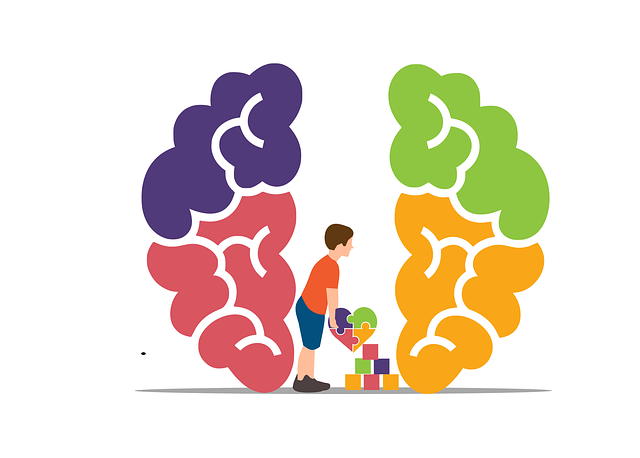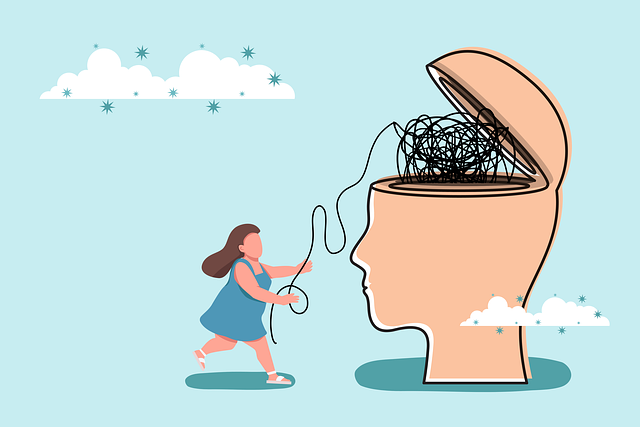Arvada Functional Neurological Disorder Therapy emphasizes cultural competency as a cornerstone for delivering quality healthcare and fostering positive patient-provider relationships. Through training, professionals learn to understand and respect diverse cultural beliefs, values, and practices, overcoming biases based on race, ethnicity, or gender. Effective communication involves learning basic languages, interpreting non-verbal cues, and using culturally sensitive language. Case studies show that tailored training improves treatment outcomes and builds trust with diverse populations. Continuous learning, active listening, and adaptive communication techniques are crucial for combating systemic biases and meeting the evolving needs of a diverse patient base.
In today’s diverse healthcare landscape, cultural competency is no longer an option but a necessity. This comprehensive guide explores essential training for healthcare providers, focusing on improving care for all patients, especially those with functional neurological disorders in Arvada. We delve into the significance of understanding cultural nuances, identifying and overcoming biases, and adopting effective communication strategies. Through case studies and implementation tips, this article offers best practices to enhance cultural competency and revolutionize patient care.
- Understanding Cultural Competency in Healthcare: Why It Matters
- Identifying and Addressing Biases and Stereotypes
- Effective Communication Strategies for Diverse Patients
- Case Studies: Best Practices in Cultural Competency Training
- Implementing and Evaluating Change: Continuous Improvement in Healthcare Organizations
Understanding Cultural Competency in Healthcare: Why It Matters

In today’s diverse healthcare landscape, cultural competency is an essential aspect that cannot be overlooked. It refers to the ability of healthcare providers to understand and appreciate the cultural beliefs, values, and practices of their patients, especially those with different ethnic backgrounds, religions, or social contexts. This concept is pivotal in ensuring quality care and fostering a positive patient-provider relationship. When healthcare professionals are culturally competent, they can better communicate, address specific health needs, and provide personalized therapy, such as Arvada Functional Neurological Disorder Therapy, effectively.
For instance, a patient with a neurological disorder might have unique cultural perspectives on illness and recovery, influenced by their background. A culturally sensitive approach allows therapists to adapt their treatment methods, encouraging positive thinking and mental wellness while considering the individual’s community outreach program implementation and overall cultural framework. This understanding can significantly impact the patient’s experience, satisfaction, and adherence to the therapeutic journey.
Identifying and Addressing Biases and Stereotypes

Healthcare provider cultural competency training plays a pivotal role in identifying and addressing biases and stereotypes that can impact patient care. These unconscious prejudices often manifest as assumptions about a patient’s background, behaviors, or health needs based on their race, ethnicity, gender, or other cultural factors. For instance, providers might approach patients from diverse communities with preconceived notions influenced by societal stereotypes, leading to misdiagnoses or inadequate treatment plans.
At Arvada Functional Neurological Disorder Therapy, we emphasize the importance of Mental Health Education Programs Design tailored to uncover and challenge these biases. By promoting Stress Management techniques, our programs encourage healthcare professionals to recognize their own unconscious biases and replace them with culturally sensitive practices. This proactive approach ensures that every patient receives personalized care, fostering better health outcomes and building stronger relationships between providers and diverse patient populations.
Effective Communication Strategies for Diverse Patients

Effective communication is a cornerstone of quality healthcare, especially when serving diverse patient populations. Healthcare providers must adopt strategies that bridge cultural gaps and foster understanding. This includes learning basic languages spoken by their community members and gaining insights into different cultural norms and values related to health and wellness. For instance, Arvada Functional Neurological Disorder Therapy clinics should train staff to recognize non-verbal cues, adapt communication styles, and use culturally sensitive language to build trust with patients from varied backgrounds.
In addressing specific issues like anxiety relief, mood management, and emotional healing processes, a nuanced approach is essential. Providers should be equipped to discuss sensitive topics without judgment, ensuring patient comfort and openness. This might involve teaching active listening skills, using simple and clear explanations tailored to the patient’s cultural context, and offering resources for follow-up care that respect individual beliefs and preferences.
Case Studies: Best Practices in Cultural Competency Training

Cultural competency training has evolved to become a cornerstone in healthcare, ensuring providers can offer personalized care that respects and understands diverse patient backgrounds. Case studies illustrate best practices, providing valuable insights into successful implementation. For instance, Arvada Functional Neurological Disorder Therapy centers have integrated mental wellness coaching programs, combining traditional therapy with empathy-building strategies to enhance patient engagement. This approach not only improves treatment outcomes but also boosts patient confidence, fostering a more inclusive and effective healthcare environment.
These studies highlight the importance of tailored training that goes beyond surface-level awareness. Effective cultural competency involves continuous learning, active listening, and adaptive communication techniques. By incorporating these strategies, healthcare providers can navigate complex cultural landscapes, build trust with diverse populations, and ultimately provide more compassionate care. This is especially crucial in addressing issues like systemic biases, ensuring every patient receives the respect and understanding they deserve.
Implementing and Evaluating Change: Continuous Improvement in Healthcare Organizations

Implementing and evaluating change is a continuous process within healthcare organizations, particularly when focusing on cultural competency. At an Arvada Functional Neurological Disorder Therapy center, for instance, training in cultural sensitivity for mental healthcare practice can significantly enhance patient care. This involves regularly assessing and improving how staff interact with diverse patient populations, understanding their unique cultural backgrounds, and tailoring therapy accordingly.
Effective change management includes setting clear goals, such as enhancing risk assessment for mental health professionals to better manage stress and prevent burnout. Regular feedback mechanisms and ongoing training sessions can help track progress and identify areas needing further attention. By fostering a culture of continuous improvement, healthcare organizations can ensure they remain responsive to the evolving needs of their diverse patient base.
Cultural competency training is a transformative tool for healthcare providers, ensuring quality care for all patients. By understanding diverse cultural backgrounds and addressing biases, healthcare professionals can foster better communication and improve patient outcomes. The case studies presented highlight successful strategies, demonstrating the positive impact on various healthcare settings. As organizations strive for continuous improvement, adopting and evaluating these practices, such as those seen in Arvada Functional Neurological Disorder Therapy, will be key to creating a more inclusive and effective healthcare system that respects and values cultural diversity.














